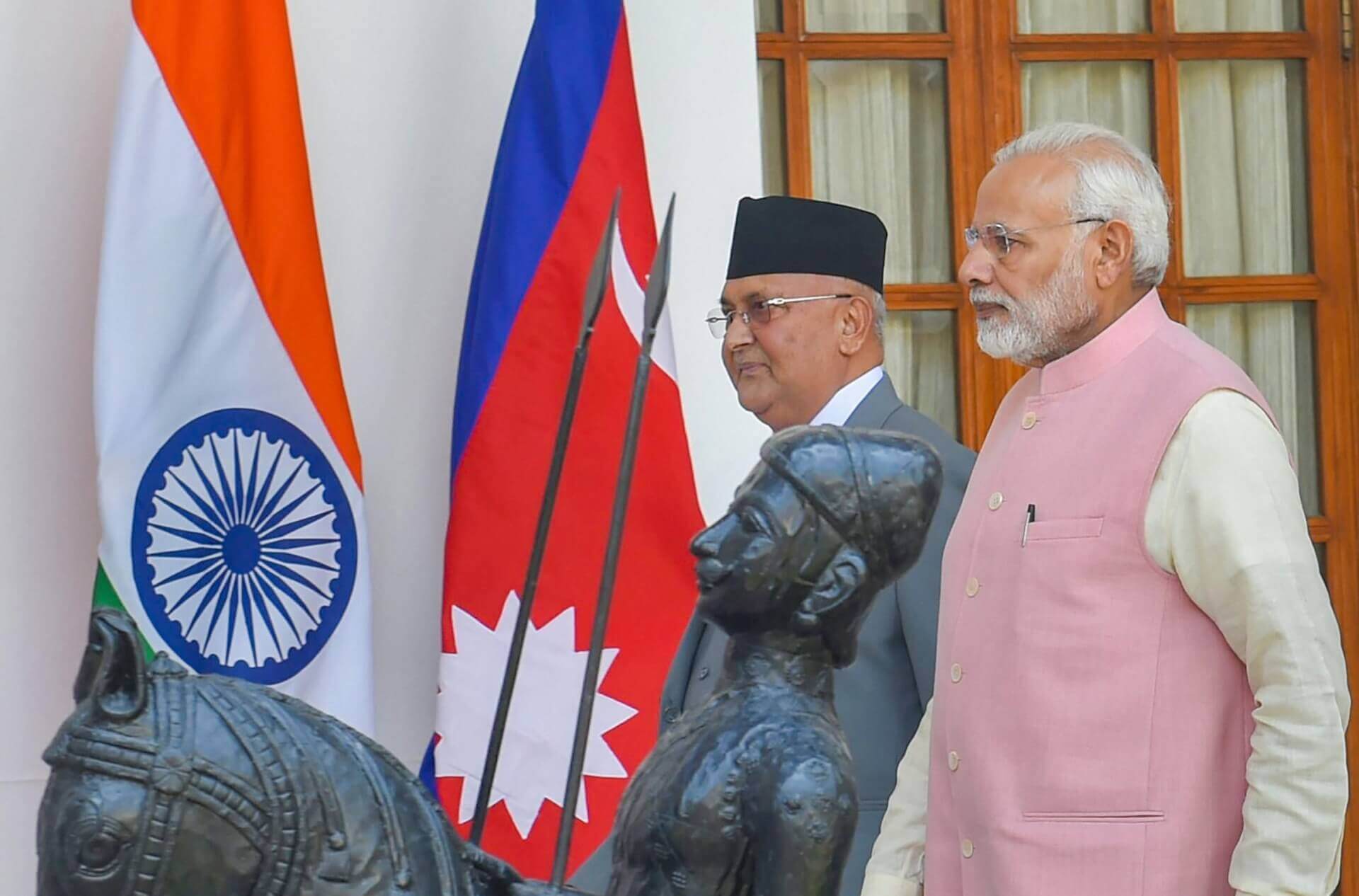The India-Nepal border dispute took another turn after New Delhi rejected Nepal’s territorial claim and the Nepalese PM Khadga Prasad Sharma Oli launched an unexpected and blistering attack against India. On May 20, after cabinet approval, the Nepalese minister for land management, Padma Aryal, tabled an updated political map that shows the Indian territories of Lipulekh, Kalapani, and Limpiyadhura as Nepalese territory.
Following the approval of the new map by the Cabinet, Oli said, “[Nepal] will now be relentlessly engaging to realise those areas back through diplomacy”. According to him, the territories belonged to Nepal, but India has made it a disputed area. “The issue will not fade away any more, we are least bothered if anyone gets angry and we will reclaim that land at any cost,” he added.
He also hit back at the suggestion made by Indian Army Chief General Manoj Mukund Naravane that Nepal’s decision on the matter may have taken place at “someone’s behest”. The PM said, “everything we do is self-guided”, dismissing Naravane’s hints at Chinese intervention.
Oli also dismissed allegations that Chinese ambassador Hou Yanqi came to his rescue when he faced a visible revolt in his party earlier this month. He said, “Some say a foreign ambassador saved me from falling… it’s a government elected by the people of Nepal, and no one can throw me out.”
At the same time, while the PM remarked that he wishes to maintain amicable diplomatic ties with India, he rather testily said that he would ask India’s government, “Seemameva jayate or satyameva jayate?”
In response to Oli’s verbal assault, India’s Ministry of External Affairs has hit back at Nepal and described its new political map as an “artificial enlargement of territorial claims”, while advising Kathmandu to refrain from what it calls “unjustified cartographic assertion”. “This unilateral act is not based on historical facts and evidence. It is contrary to the bilateral understanding to resolve the outstanding boundary issues through diplomatic dialogue,” External Affairs Ministry Spokesperson Anurag Srivastava said.
The dispute began after Nepal objected to India building a new road from Dharchula to Lipulekh, a territory that Nepal has long claimed as its own. But analysts have pointed out that recent decisions and comments by the Nepalese government, particularly by the PM, may be related to domestic political compulsions. In a bid to deflect public attention from the crisis in the government and its failure to tackle the Covid-19 crisis, there has been a concerted effort by the Oli government in recent days to whip up ultra-nationalistic emotions to settle domestic scores with his adversaries within his ruling coalition.
Oli shares the chair of the Nepal Communist Party (NCP) with Pushpa Kumar Dahal, more commonly known as Prachanda. While Oli is from the Marxist-Leninist stream, Prachanda from the Maoist faction. NCP formed the government in 2017 and Oli became the PM only after a compromise between the two factions in 2018.
Recently, Oli has been facing massive pressure to make way for a Maoist prime minister. To make sure he doesn’t lose his reign, his government even promulgated two ordinances last month in a bid to amend the Political Parties Act of Nepal, which will make it easier to split a party. This move baffled political observers as the Nepal Communist Party has a majority in the country’s parliament. Since then, however, the ordinances have been withdrawn as the Prachanda-led rival faction threatened the stability of the government.
Only last week, Oli abruptly left the ruling party’s secretariat meeting after heated discussions and disagreements over the appointment of a possible successor. Such incidents expose the fault-lines lying beneath the surface unity of the party, and also the growing pressure on Oli to quit. Further, his assertion that the novel coronavirus from India is more lethal than the variants from Italy and China, suggests an element of politicking to raise an anti-India sentiment among his political constituents, especially after the blockade of 2015.
During his first term as Nepal’s prime minister, there was a constitutional crisis in Nepal that fueled anti-India sentiments after India unofficially imposed a blockade for months. To counter India, Oli had signed a series of agreements with China.
India and Nepal have long been allies, with New Delhi accounting for over two-thirds of Kathmandu’s trade. But recent disagreements and with such territorial disputes coming out in the open, tensions between the two neighbours seem to be escalating. While New Delhi is wary and worried about increasing Chinese influence in its neighbouring nation, some in Nepal might see this as another instance of India’s big brother attitude in the region and a legitimate reason to welcome China’s presence in the region even more.
Image Source: ORF

